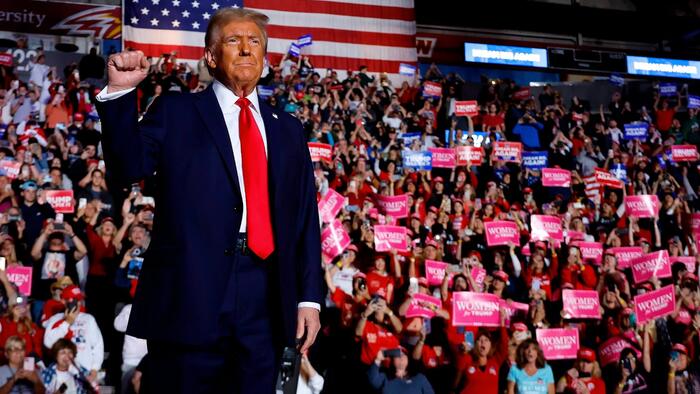In the aftermath of the recent election, disheartened Democrats have attempted to downplay the significance of their defeat, portraying it as less than a landslide. However, this reaction seems to stem from deeper fears about their future electoral viability, particularly with Donald Trump’s increasing prominence and popularity which seemingly positions him favorably for the coming elections. Their unease is palpable, as they recognize that the shifting political landscape may bode ill for their party’s chances in 2028 and beyond. Prior to the election, the Democrat narrative revolved around issues with the Electoral College, expressing confidence that they would triumph based on popular vote alone, a sentiment echoed by figures like Tim Walz. Post-election, however, the focus has shifted dramatically as Democrats now seek to diminish the magnitude of Trump’s victory and the momentum he carries into the next election cycle.
Trump’s electoral success warrants closer examination beyond mere surface-level statistics. His victory marks a significant paradigm shift, being the first Republican candidate in two decades to secure a win against a Democrat in the popular vote. Trump not only surpassed all prior Republican candidates in terms of popular votes, but he also won every crucial swing state and came perilously close to flipping traditionally blue states like New Jersey and Virginia. His decisive electoral victory, clocking in at 312-226, speaks volumes about the current political dynamics, especially when juxtaposed against the Democrats’ overall decline in popular support, which was particularly glaring as they managed to decrease their vote percentage in fifty states.
Further dissection of Trump’s impressive performance reveals that his victory comes amidst significant challenges, such as being significantly outspent and out-raised by Kamala Harris. Despite her advantages in campaign financing and targeted campaigning efforts in swing states, Trump’s ability to sweep all seven essential battlegrounds adds to the narrative of his landslide victory. Even more striking is the fact that Trump’s numbers improved in every successive election he participated in, despite facing an unprecedented barrage of negative press coverage over nearly eight years. This consistent uptrend amidst overwhelming adversity suggests a resilient support base that transcends typical partisan lines, marking a notable shift in voter sentiments.
Even within the realm of media portrayal post-election, Trump faced substantial biases which painted him unfavorably in comparison to his opponents. The media propped up Harris through protective press coverage and favorable treatment while she largely evaded hard questions, yet even with these advantages, Trump managed to secure a victory that overshadowed not only Harris’s efforts but also those of Biden. His persistence amid opposition from various societal elite factions in academia, entertainment, and sports further underscores his appeal among the electorate, as he cultivated a relationship with voters who felt disillusioned by the establishment.
It is crucial to comprehend that Trump’s electoral win is defined less by mere numerical victories and more by the qualitative change in political momentum it represents. His success came despite navigating a minefield of societal prejudices and outright refusals by the political and media class to acknowledge his legitimacy. The resulting skirmishes reveal an enduring truth—that despite relentless opposition, Trump not only claimed a monumental victory but did so outright, winning by nearly 2.5 million votes compared to his opposition, solidifying the case for recognizing his victory as a definitive landslide.
The recent Democratic attempts to downplay Trump’s remarkable electoral achievements can be viewed as symptomatic of a broader denial about their party’s standing in the current political climate. The narratives propagated by party leaders and their media apologists reflect a fear of replication; they worry that the populist wave championed by Trump could persist and adapt into future elections. With the structural advantages the Democrats enjoyed in November potentially eroding, it appears their grim forecast for subsequent contests looms large, leaving them entrenched in denial as they grapple with the potential repercussions of a strengthened Republican base, spurred on by Trump’s conservative populism. The Biden administration’s precarious position further amplifies these concerns as Democrats remain wary of facing a stronger Republican front in forthcoming electoral battles.

